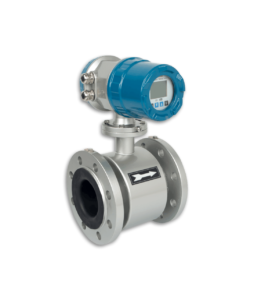The corrosion resistance of the EMF electrode is required to be very high, and corrosion is not allowed, or strictly speaking, only a very low corrosion rate is allowed, otherwise, the sealing between the electrode and the lining will be damaged.
If the medium leaks, it can damage the insulation and the instrument cannot work until it destroys the entire electromagnetic flow sensor. Commonly used metal materials include molybdenum-containing acid-resistant steel 1Cr18Ni 12Mo2Ti, Hastelloy (corrosion-resistant nickel-based alloy) B, C, titanium, tantalum, and platinum-iridium alloy, which can cover almost all chemical liquids. In addition, there are low-noise electrodes suitable for slurry, etc.
They are conductive rubber electrodes, conductive fluoroplastic electrodes, porous ceramic electrodes, or metal electrodes coated with these materials.

| Chemical liquid medium | Platinum-iridium alloy | Tantalum | Other materials |
| Aluminum fluoride | A | × | |
| Aluminum nitrate | A | × | |
| Aluminum fluoride | A | × | B(Hastelloy C) |
| Antimony trichloride | × | A | |
| Barium hydroxide | A | × | |
| Chlorine dioxide | × | A | |
| Copper fluoride | A | × | |
| Copper chloride 40% | × | A | B(Hastelloy C) |
| Zinc chloride 50% | A | × | |
| Fluosilicic acid 10%-20% | A | × | |
| Hydrobromic acid 50% | × | A | |
| Hydrobromic acid 10%-20% | A | × | |
| Hydrobromic acid 35% | A | × | B(Hastelloy C) |
| Hypochlorous acid 10%-20% | × | A | B(Hastelloy C) |
| Lead acetate | × | A | |
| Magnesium hydroxide | A | × | |
| Potassium hydroxide 10%-40% | A | × | |
| Sodium cyanide | × | A | |
| Sodium ferrocyanide | × | B | |
| Sodium fluoride 5%-50% | A | × | |
| Sodium hydroxide 5%-50% | A | × | B(Hastelloy C) |
| Sulfuric acid 10%-50% | A | A | |
| Sulfuric acid 100% | A | × | |
| Sodium thiosulfate | × | × | A(Hastelloy C) |
| Zinc chloride | A | × |
A-Preferred materials Actually have an extremely long service life
B-Satisfactory material, long service life in most cases
×-can not be used
